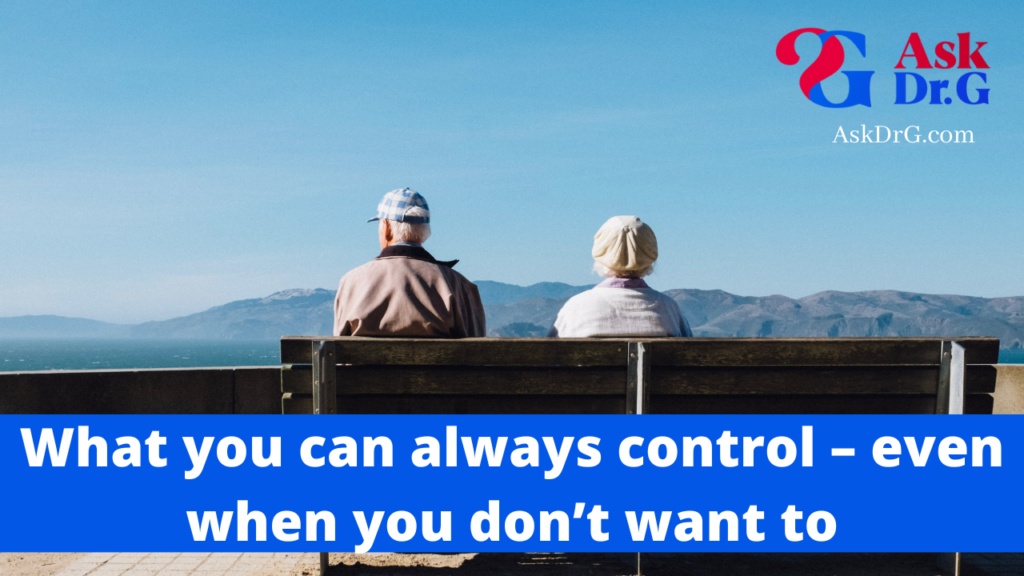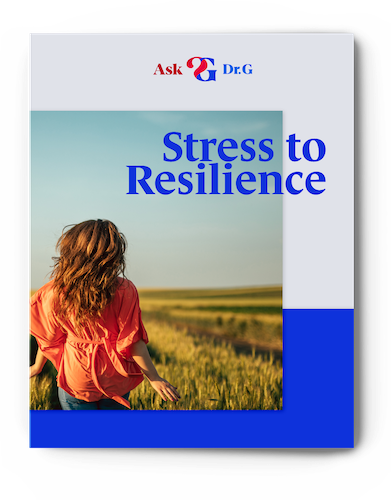Hi!
There’s a lot we can’t control.
In my line of work the most obvious is our health. As a doctor I can tell you: the best case scenario is that everyone lives long enough to have some health problems. Because the only way to avoid that happening is to die shockingly young. But, because of this dichotomy, a lot of people really fear aging.
Recently a patient told me that he heard one of my interviews on resilience. “Resilience ain’t gonna help when we’re old, doc,” he told me.
Disagree!
Look, I get his argument. Resilience is the ability to navigate change and come through it the kind of person you want to be. Since just about nobody wants to be ill or limited in any way, that feels impossible to reconcile with aging. The great news is, that’s just not the case.
I have three points to make here.
- Aging is not just about not dying.
- This is an issue for everyone because fear of (and avoidance of) aging is a huge focus of individuals as soon as they reach adulthood!
- You have way more control over how you age than you may know – and it’s all about resilience.
Aging is about how you live for (hopefully) decades of your life. It’s about wisdom and priorities and expertise in whatever skills you’ve developed throughout your existence. It’s about keeping the relationships and the hobbies and the communities you want and letting go of those you don’t. It’s about using what you’ve learned to make the world a better place.
So what, exactly, can we control? Our attitudes and beliefs, our words and our actions. There is a huge body of research that shows that your attitudes about getting older have enormous impact on your actual experience of aging. According to research in JAMA (Journal of the American Medical Association) released earlier this year, one’s beliefs about one’s own aging, when positive, improved mortality (the likelihood that you’d die) by 43% over the four years of the study AND demonstrated:
- Reduced risk of physical function limitations
- Decreased cognitive impairment
- Increased happiness and social support
- Higher number of friends
…and several other positive indicators for wellness.
None of these results depended on the actual illness profile or baseline functioning of the study participants.
Too complicated; didn’t really take that in? Here’s the summary: Having an open and welcoming attitude towards aging can increase your life expectancy by more than seven years.
I’m turning 52 in a couple of months and I feel and watch myself aging. It’s a relief to ignore all the antiaging pressure I see in advertisements and instead think about what has been and will be awesome about getting older. And how I want to do it.
How do you want to navigate aging, and what kind of person do you want to be in that change? Whether your next birthday will be 25 or 85, focus on what youCAN control – and comment and tell me!
All my best,
Dr. G




